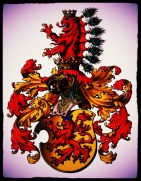Austrian Netherlands
The Austrian Netherlands was the period in which the Habsburg Monarchy was in control of the Southern Netherlands (modern Belgium) from 1714, until its annexation during the aftermath of the Battle of Sprimont by French revolutionary forces in 1794. The Austrian Netherlands was a broken territory that consisted of what is now western Belgium as well as greater Luxembourg, bisected by the Prince-Bishopric of Liège. The dominant languages were German (including Luxembourgish), Dutch (Flemish), and Latin, along with Picard and Walloon.
Under the Treaty of Rastatt (1714), following the War of the Spanish Succession, the surviving portions of the Spanish Netherlands were ceded to Austria. The Austrians were unconcerned with the upkeep of their province and the fortresses along the border (the Barrier Fortresses) were, by treaty, garrisoned with Dutch troops. The area had, in fact, been given to Austria largely at British and Dutch insistence, as these powers feared potential French domination of the region.
Emperor Charles VI attempted to use the Austrian Netherlands to compete with British and Dutch traders in an enterprise known as the Ostend Company. Throughout the latter part of the eighteenth century, the principal foreign policy goal of the Habsburg rulers was to exchange the Austrian Netherlands for Bavaria, which would round out Habsburg possessions in southern Germany. In the 1757 Treaty of Versailles, Austria agreed to the creation of an independent state in the Southern Netherlands ruled by Philip, Duke of Parma and garrisoned by French troops in exchange for French help in recovering Silesia. However the agreement was later revoked by the Third Treaty of Versailles and Austrian rule continued.
In 1784 Joseph II, Holy Roman Emperor did take up the long-standing grudge of Antwerp, whose once-flourishing trade was destroyed by the permanent closure of the Scheldt, and demanded that the Dutch Republic open the river to navigation. However, the Emperor's stance was far from militant, and he called off hostilities after the so-called Kettle War, known by that name because its only "casualty" was a kettle. Though Joseph did secure in the Treaty of Fontainebleau in 1785 that the Southern Netherlands would be compensated by the Dutch Republic for the continued closing the Scheldt, this achievement failed to gain him much popularity.



